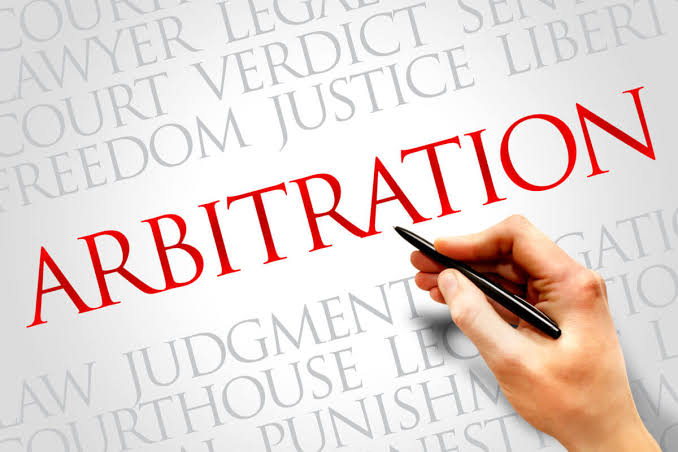Latest News
International Arbitration by PRC Companies : Is it costly to arbitrate in Hong Kong?

International Arbitration by PRC Companies: Is it costly to arbitrate in Hong Kong?
Introduction
In this part of our ongoing series, we will examine the costs of arbitration in Hong Kong and if it is as expensive as thought. Arbitration costs mainly consist of two parts: solicitors’ fees and the costs attributable to arbitration tribunals and institutions.
Solicitors’ Fees
Solicitors’ fees (The first part of arbitration costs) usually account for a substantial proportion of total arbitration costs. Solicitors in Hong Kong typically charge hourly rates, which usually vary from HKD2,000 per hour to HKD8,000 per hour, subject to professional experience and expertise. As such, how much would an arbitration case cost, and can fee caps be set? Some procedures in arbitration can be charged on a capped fee basis. However, it is difficult to set a capped fee structure for the entire arbitration proceedings for the most part. Why is this so?
Solicitor fees are based on time spent working on any given matter, which is determined by the complexity of the said matter and approaches and strategies adopted by the claimant and respondent in the arbitration proceedings. Whilst it is evident that a solicitor would spend more time on a complicated case, but even so, why cannot a fee cap be set? This is because it is difficult to make a comprehensive and accurate estimate of the overall workload from the outset. This, in turn, is partially due to Hong Kong’s common law system1, which relies on precedent and its recognition of non-written evidence. As such, it gives rise to uncertainty during the arbitral proceedings.
At this juncture, some explanation is necessary: common law can be considered case-made law. Two cases may look similar on the surface. Still, they can be distinguished from one another by matters such as a specific word used in a contractual term, a document, an email, a Wechat message, or even a telephone discussion. To put this in an arbitration context, imagine if a Wechat message with important information only came to the lawyer’s attention when the opposing party disclosed that Wechat message during an arbitral proceeding. The client did not have a record of the document at all. At this point, a solicitor will need to advance the client’s case with the most favourable legal standpoint, based on the unique background circumstances that arise, including the new evidence.
Another example would be that certain information was exchanged during a dinnertime conversation, telephone call, or face-to-face meeting with no record being held. However, as long as a participant of such an exchange can testify as to its contents, such testimonies of a witness will be accepted as valid evidence under common law. Of course, the evidence may be taken (or rejected) in its entirety or partially by the arbitration tribunal after assessing the witness's credibility and the evidence during the cross-examination by the opposing counsel and the tribunal. Quite often, other witnesses may testify on the same matter with contradicting accounts of the event, which the tribunal will also consider.
Therefore, elements of
(i) which witnesses are to provide oral testimonies,
(ii) the contents of the aforementioned oral testimonies, and
(iii) the availability of evidence to address any variants to, or contradictions of, facts introduced by the opposing side, have a substantial impact on a case at hand. This consideration also makes it difficult for a solicitor to make a comprehensive judgement and fair estimate of fees at the beginning of arbitration.
Conclusion
We have discussed that the complexity of a case will have an impact on legal costs. The second factor that may also affect the costs is the strategies and approaches taken by the parties (and their lawyers) during the arbitration. If either party (or both parties) take a combative stance on even the most minor issues, legal fees will be legal fees substantially higher. Whether in arbitration or litigation, naturally, a lawyer should aim to fight for the best interest of his/her client, but this does not mean excessive pursuit over minor issues that would produce disproportionate fees. Some yielding of minor issues may be part of a step necessary for the overall strategic considerations.
This Article Does Not Intend To Hurt The Sentiments Of Any Individual Community, Sect, Or Religion Etcetera. This Article Is Based Purely On The Authors Personal Views And Opinions In The Exercise Of The Fundamental Right Guaranteed Under Article 19(1)(A) And Other Related Laws Being Force In India, For The Time Being. Further, despite all efforts made to ensure the accuracy and correctness of the information published, White Code VIA Mediation and Arbitration Centre shall not be responsible for any errors caused due to human error or otherwise.
- Introduction
- Solicitors' fees
- Conclusion






































































































































































































































































































































































































































































































































































































































































































































































































































































































































































































































































































































































































































































































































































































































































































































































































































